Intel, alumni support propels robot initiative to fight COVID-19
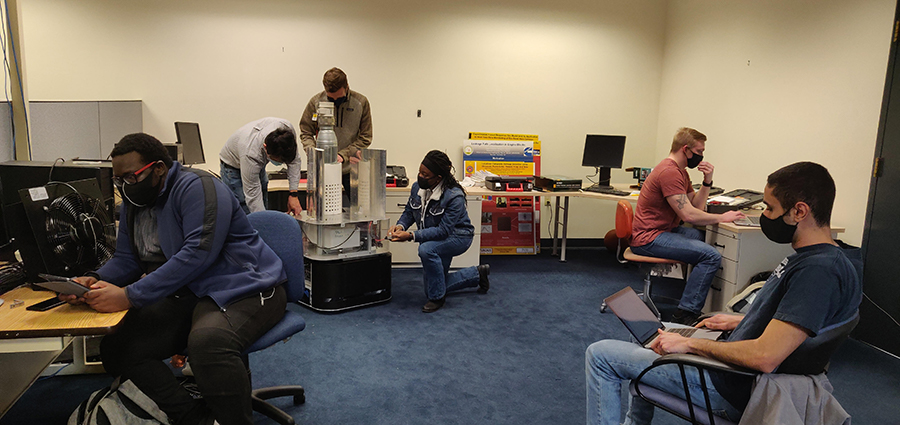
“Intel’s investment of nearly $200,000 and in-kind assistance from Purdue Engineering alumni have made it possible for us to assemble diverse talent and quickly progress toward introducing novel solutions to address the current pandemic and future health crises,” said Luciano Castillo, the Kenninger Professor of Renewable Energy and Power Systems in Mechanical Engineering, who is leading the multi-institutional effort.
“Through a Vertically Integrated Projects (VIP) course, in its third semester, we’re working to commercialize autonomous robots that can detect targeted pathogens in seconds and disinfect hospitals and campuses noninvasively, mitigating the risk to humans. Our initiative is advancing rapidly, as we engage with industry and alumni, collaborate with multiple universities, and bring new ways of learning to students across various disciplines and grade levels.”
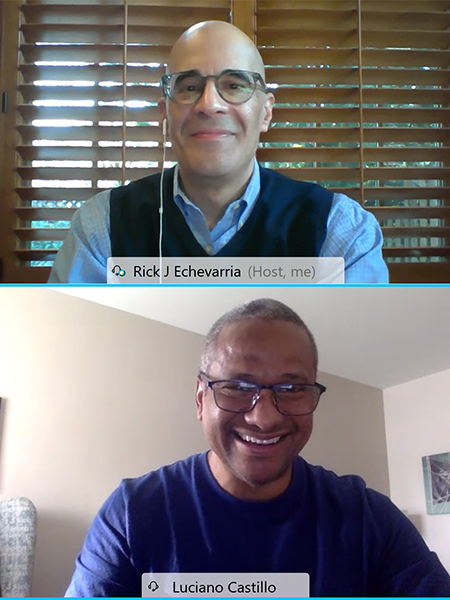
To date, two robots have been built, in collaboration with the Indiana Manufacturing Institute; related disinfection systems and other products have been developed; and these technologies are being tested in COVID-19 Purdue quarantine rooms and classrooms. Six patent applications have been filed, and commercialization opportunities, including formation of two new startups (in the College of Engineering and the Purdue Polytechnic Institute), are being pursued.
Intel and other entrepreneurial support
Rick Echevarria (BSIE 1988), vice president and general manager of the Intel Response Technology Initiative and an active Purdue Engineering supporter, has spearheaded the Intel funding and is facilitating connections with other resources.
“The new technologies that Purdue has developed hold important promise in the global fight to quell the spread of COVID-19, as well as potential to combat future pandemics,” Echevarria said. “We are excited to be collaborating with Purdue to help accelerate the transfer of its innovations from the lab to the market.”
Another alumnus instrumental in moving the Purdue robotics work forward is Steve VonderHaar (BSEE 1981), chairman, mentor and coach of the Silicon Valley Boilermaker Innovation Group (SVBIG). He is helping the Purdue Engineering team develop commercial opportunities, including establishing a startup to manufacture and sell Purdue-developed technologies.
“Creating a model for the future of education”
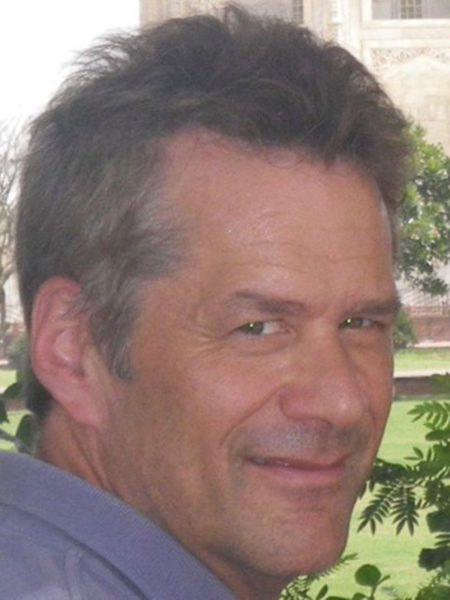
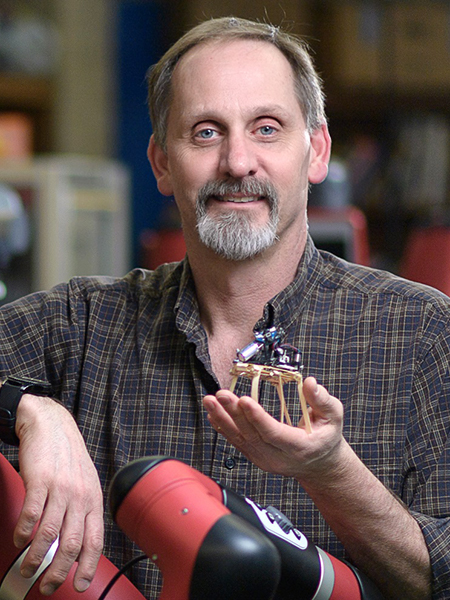
“We are creating a model for the future of education,” Castillo noted. “Our approach is demonstrating the value of bringing together the talents, thoughts, cultures and viewpoints of multiple participants, spanning academia, the private sector and our alumni community. We’re finding that industry and alumni are critical in developing new knowledge, innovation and a new mode of discovery to both educate the next generation and deliver social impact – particularly under crisis.”
Richard Voyles (BSEE 1984), the Daniel C. Lewis Professor at Purdue Polytechnic, head of the Collaborative Robotics Lab at Purdue, and director of the Robotics Accelerator, created the VIP course with Castillo and is teaching it in Spring 2021.
The VIP course benefits undergraduate and graduate students from Purdue and five other universities: New York Institute of Technology, Rensselaer Polytechnic Institute, University of Illinois at Urbana-Champaign, Universidad Nacional Autónoma de Mexico (UNAM), and Tsinghua University in China. High school students in Mexico and in Fort Wayne, Indiana, also participate, and a Purdue Engineering senior design team and Castillo’s lab group contribute.
Students cite diversity, social impact
Purdue students said the breadth of participants has enriched their learning and results, and it’s rewarding to make a difference.
“I learned a lot from working in the VIP program with students from various fields, who offered different approaches to problems and experiments,” said Tanya Purwar, a mechanical engineering graduate student.
For example, Purwar said students with biology backgrounds helped the team develop quick and better approaches. One such team member, Taylor Osborn, a Purdue pre-medicine student in pharmaceutical sciences, said: “I loved contributing to finding ways for students to be on campus safely, and working with mechanical engineers taught me to approach problems creatively. I also enjoyed sharing my knowledge of the COVID-19 virus with those in non-medical majors.”
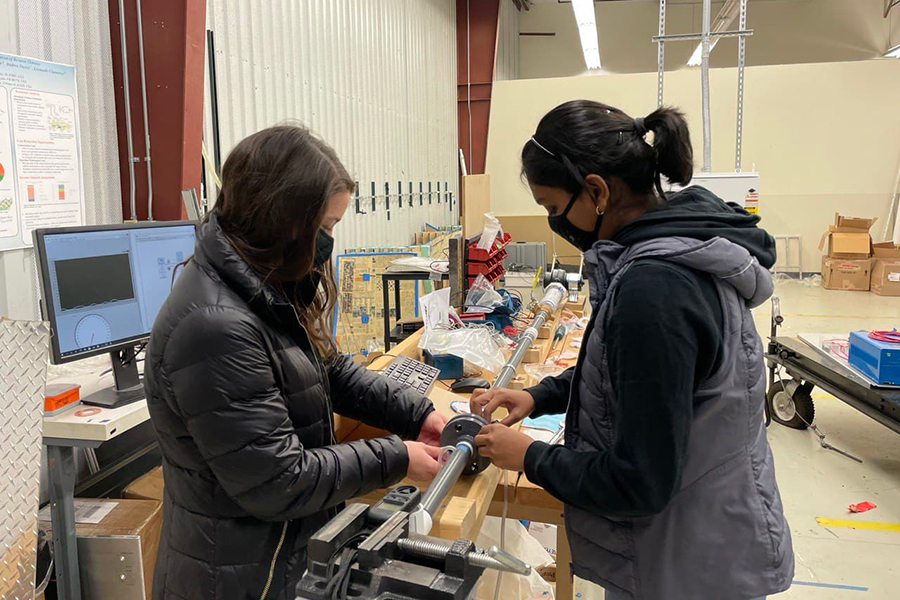
High school students are learning and contributing, too.
Maria Castaño, a high school senior in Mexico who joined the VIP team virtually last summer and fall, said the experience led her to apply successfully to Purdue’s College of Engineering, where she will start first-year engineering classes in Fall 2021 and hopes to pursue a biomedical engineering degree.
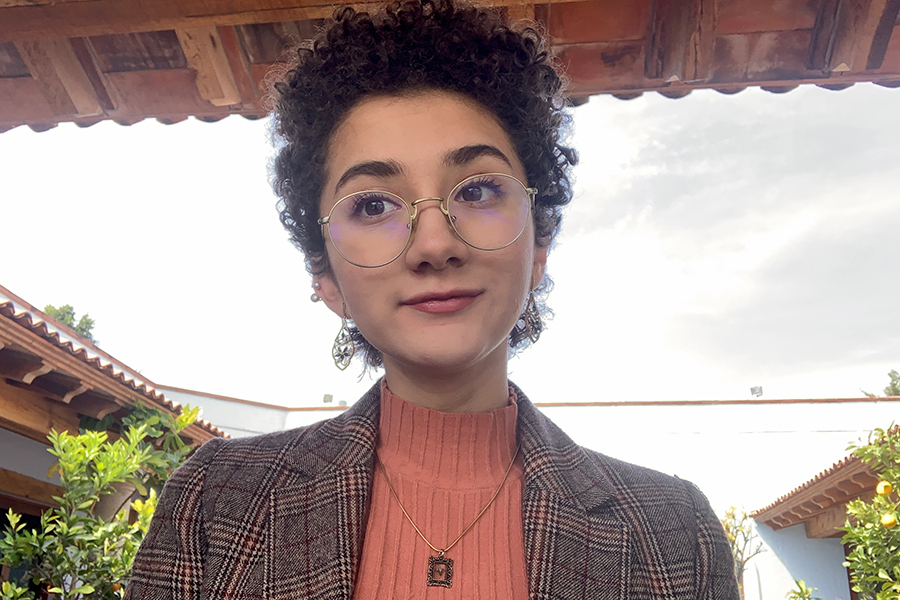
In addition, the VIP course has been incorporated into the curriculum at the Cornerstone Christian College Preparatory School (C-Prep) in Fort Wayne, an independent day and high school. This involvement has introduced some 25 African American students to engineering and enabled them to help design robot sections.
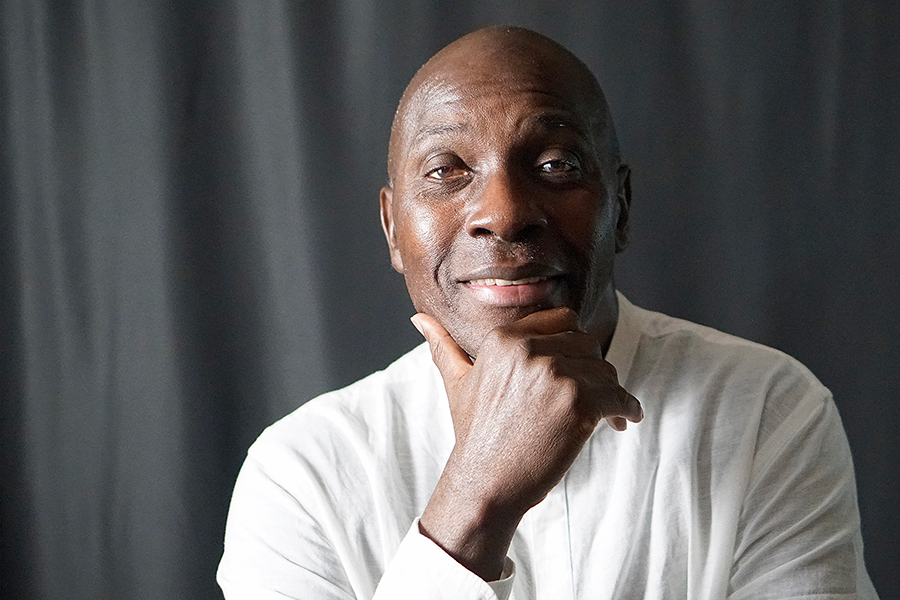
One C-Prep student, senior Brook Rosemond, wrote to the Purdue team, “Thank you for providing C-Prep students and staff with the opportunity to be a part of revolutionary work on the COVID robot and allowing us to let our light shine, through science, robotics and leadership.” Oscar Nelson Dowdell-Underwood, the school’s founder, headmaster and superintendent, said this expression of gratitude “speaks for me and the entire C-Prep Family.”
Source: Luciano Castillo, 518-573-6245, lcastillo@purdue.edu
